‘Seven Kings Must Die’ (full title, ‘The Last Kingdom: Seven Kings Must Die’) is a Netflix historical action drama film. A direct sequel to the BBC Two/Netflix series ‘The Last Kingdom,’ the film serves as the epic conclusion to the story of Uhtred of Bebbanburg (Alexander Dreymon). Both the series and the film are developed from the historical fiction series of novels, ‘The Saxon Stories’ by Bernard Cornwell. ‘Seven Kings Must Die’ is especially based on the last two books in the series: ‘Sword of Kings’ (2019) and ‘War Lord’ (2020). However, considerable creative liberty has been taken during the adaptation process. Even though the film is a retelling of historical events, the narrative is ultimately fictional. Here is everything you might want to know about the ending of ‘Seven Kings Must Die.’ SPOILERS AHEAD.
Seven Kings Must Die Plot Synopsis
The film begins and ends with the narration from Finan (Mark Rowley), a fiercely loyal Irish warrior serving under Uhtred. He sets the stage for the narrative before the story starts. With King Edward on the deathbed, enemies of Wessex begin stirring in their lair, knowing that there are always internal struggle and bloodshed after the death of a Saxon king. Most of England – Wessex, Mercia, and East Anglia – is already under Saxon control. But Northumbria, governed by Uhtred from his castle in Bebbanburg, is technically not. Although Uhtred was born a Saxon, he was brought up as a Dane and is now an adherent of Norse paganism. Toward the end of ‘The Last Kingdom,’ he brokered a peace between King Constantin of Scotia (Rod Hallett) and Edward.
Uhtred effectively made Northumbria a buffer between what was officially England and Scotia. He didn’t swear loyalty to Edward but accepted him as his overlord, agreeing to pay homage to him. As Edward nears his death, Anlaf (Pekka Strang), Hiberno-Scandinavian (Irish-Viking) king of Irland, arrives in West Northumbria with a contingent of Wolf Warriors and slaughters an entire settlement before reuniting with his daughter, Astrid, who came to England earlier as a spy.
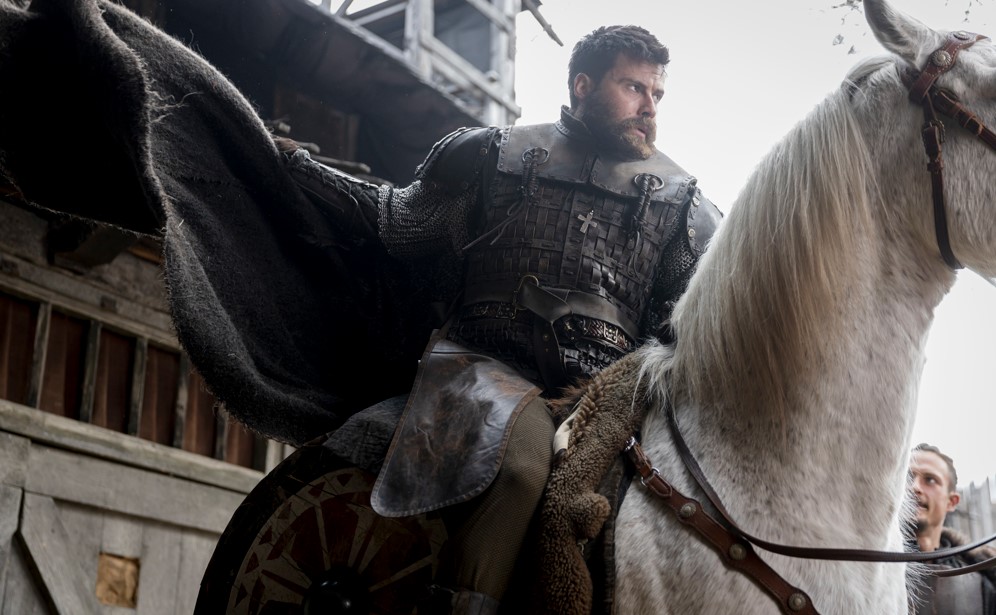
After Edward’s death, one of his sons, Aelfweard of Wessex, immediately moves to lay claim to his father’s vacant throne. He tries to arrest Edward’s widowed queen Eadgifu (Elaine Cassidy) and son Edmund, but they manage to flee to Northumbria with Aldhelm and find shelter in Bebbanburg. Uhtred is a father figure for Aethelstan (Harry Gilby), who spent much of his youth in Northumbria and readily supports the younger man’s claim to the throne. This prompts him to leave Bebbanburg after a long while, but not before Eadgifu warns him that Aethelstan is no longer the carefree boy he and his followers remember.
Uhtred soon discovers how true this is. Under the influence of Ingilmundr, his aide and secret lover, Aethelstan has become ruthless and a religious zealot. It seems that the zealotry is influenced by his belief that his feelings for Ingilmundr are an insult to God. He murders Aelfweard even after the latter surrenders and begins systematically targeting the part of the Danish population that still follows the old ways. As Uhtred is the leader of perhaps the only English territory where the pagans and Christians live in harmony, he opposes Aethelstan’s new rules and refuses to swear allegiance to him, though he promises once the younger man proves himself to be a worthy king of everyone that resides in England, he will gladly do so.
Meanwhile, Aethelstan’s expansive ventures make other leaders on the British Isles uncomfortable. Seizing the opportunity, Anlaf rallies them together by convincing them that Aethelstan will come after all of them. And this is not really far from the truth, as Aethelstan proves himself to be a ruthless and ambitious king.
Because of his continued disobedience of royal decrees, Uhtred is apprehended by Ingilmundr and Aethelstan through treachery. His son, Osbert, and Edmund are sent to Ingilmundr’s garrison in Thelwael to serve as common soldiers. Uhtred discovers that Aldhelm has been executed for helping him escape earlier. Uhtred prepares for death, but Aethelstan spares him, banishing him and forbidding anyone to help him.
Uhtred spends weeks roaming aimlessly through the lands — hungry and cold. Just as he nears death, he is found by Anlaf’s people, who bring him to Shetland Isles, where the disgruntled kings and their armies have gathered. The Christian and pagan rulers were at each other’s throats until recently, but Aethelstan’s ascension has forced them to find common ground.
The assembled kings advise Uhtred that if he wants to prevent a war, he has to assassinate Athelstan. As he leaves the camp, Uhtred spots Ingilmundr there and realizes that the other man is Anlaf’s spy among Aethelstan’s close aides. He rushes to Winchester, the capital of Wessex, not to kill Aethelstan but to warn him. Unfortunately, the young king refuses to believe him. However, it isn’t long before Ingilmundr’s treachery becomes apparent. He lets the Irland army through Thelwael, and they slaughter the Saxon soldiers posted there, but Osbert and Edmund manage to survive.
Realizing his folly, a repentant Aethelstan tries to send Uhtred and the others away so that he can face the consequences of his actions alone, but Uhtred refuses to abandon the boy he has always considered a son. At the Battle of Brunanburh, the English army overcomes a much larger force because of Uhtred’s cunning, though when the dust settles, he is found severely wounded.
Seven Kings Must Die Ending: Does Uhtred Die?
In one of the final scenes of the film, Uhtred comes out of the room he has been resting since the battle. The injuries have taken a toll on him; he looks like an elderly warrior for the first time in the movie. In the presence of his successor Osbert, Uhtred finally swears loyalty to Aethelstan under the condition that the young king will never marry and his throne will be passed to his brother Edmund.
As he speaks to his friends, family, Eadgifu — whom Uhtred has grown close to since the start of all this — and Aethelstan, he hears a commotion behind him. He sees the doors to a massive hall open up, and all the people he has lost are there, enjoying a great feast. And that’s when the film ends, with Uhtred standing between the mortal world and Valhalla. Finan, once more serving as the narrator, isn’t clear about Uhtred’s fate. He tells the audience that the Chronicles don’t record if Uhtred survived, but those like him who knew the man recognize him as the greatest warrior of their age.
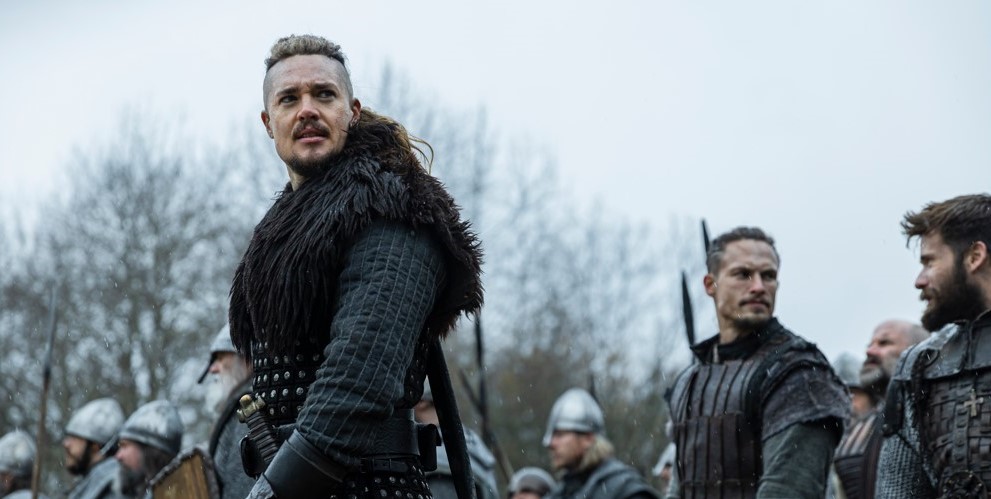
Cornwell’s books have a much less ambiguous ending than the film. At the end of ‘War Lord,’ Uhtred’s land stretches from one coast to another, and on Aethelstan’s orders, he marries a younger widow. As mentioned above, the film is significantly different from the source material. Uhtred might no longer be able to choose the path ahead, but both things in front of him represent peace. As a warrior belonging to the pagan faith, he has always hoped for Valhalla after death. He can be reunited with his loved ones and feast with them for eternity. However, if he survives, he can get a few more years with his son, Athelstan, and his friends. The women he loves have the tendency to die early. That can change with Eadgifu. One can call this wistful thinking, but Valhalla isn’t going anywhere. So, if it is left to us, we like to presume that Uhtred survives.
Why Does Uhtred Ask Athelstan Never to Marry?
Uhtred learns about Aethelstan’s sexual relationship with Ingilmundr quite early in the film and keeps it a secret. But Ingilmundr informs Anlaf about it, and he tells the Christian kings, which adds another layer to their outrage against Aethelstan. In many ways, Ingilmundr is the antithesis of Uhtred. He is a Dane raised by the Saxons. Unlike Uhtred, Ingilmundr only pretended to accept the religion of his captors; he continued to be a pagan until he was executed on Aethelstan’s orders.
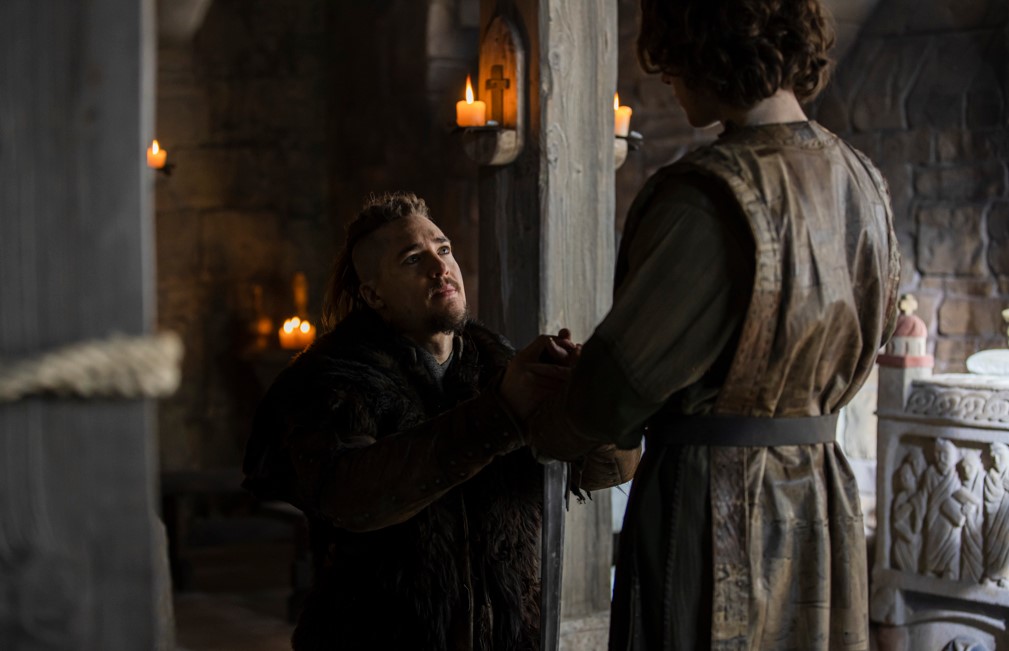
Knowing who he is, Uhtred spares Aethelstan a lifetime of scrutiny and hostility by including the condition of the latter of not marrying and selecting Edmund as the heir for his supplication. Once more, Uhtred is willing to serve as a shield wall for the young king. Aethelstan recognizes what his mentor intends to do and gratefully accepts the offer.
Who Are the Seven Kings Prophesied to Die? What is the Northumbrian Prophecy?
The title of ‘Seven Kings Must Die’ refers to a prophecy spoken by Ingrith (Ilona Chevakova), Finan’s lover. The complete prophecy is, “Seven Kings Must Die, and the Woman You Love.” Believing that both parts are meant for him, Uhtred points out that he is no king, nor he has a woman. When his relationship with Eadgifu starts to deepen, many fears that the prophecy speaks about her. However, it is revealed that the second part of the prophecy is meant for Finan, not Uhtred. Ingrith prophesizes her own death before it happens.
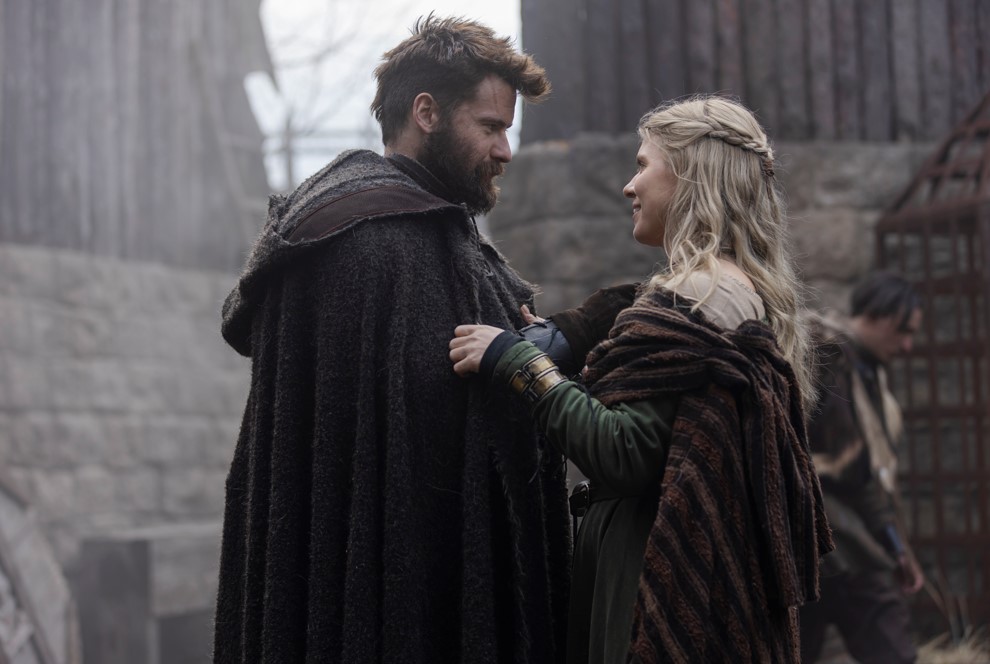
As for the first part of the prophecy, Edward is effectively the first king to die. While none of the seven enemy kings fall during the Battle of Brunanburh, five of their heirs or future kings do —- Scotia, Orkney, Man, Shetland, and Strathclyde. After sustaining the injuries, Uhtred wonders whether he will be the seventh king, though he never proclaimed himself as such. It seems that the Northumbrians didn’t count Astrid among the fallen heirs. She was meant to be her father’s successor, the ruler of Northumbria, after he had regained the land. Her death on the battlefield effectively makes the Northumbrian prophecy accurate.
Read More: Is Netflix’s Seven Kings Must Die Based on a True Story?

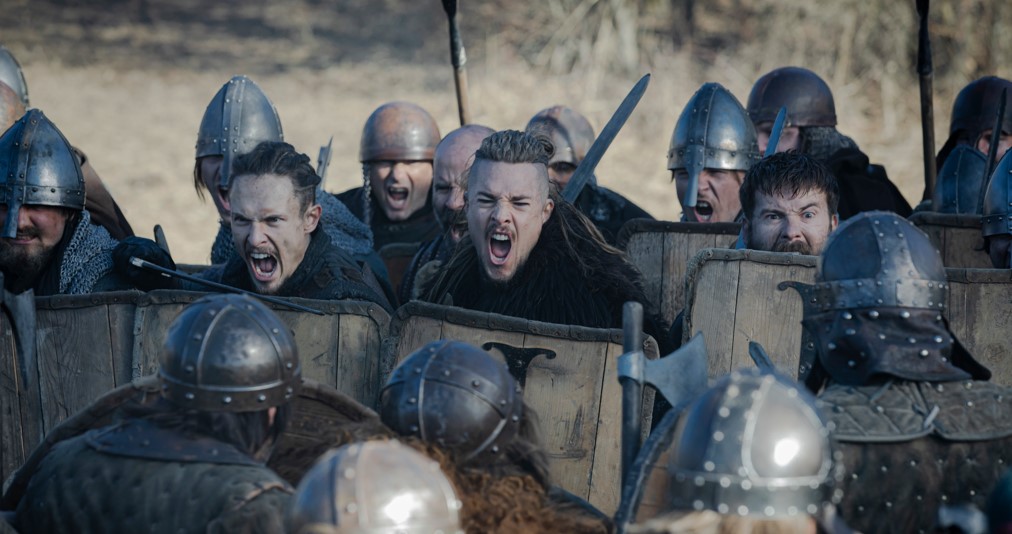
You must be logged in to post a comment.